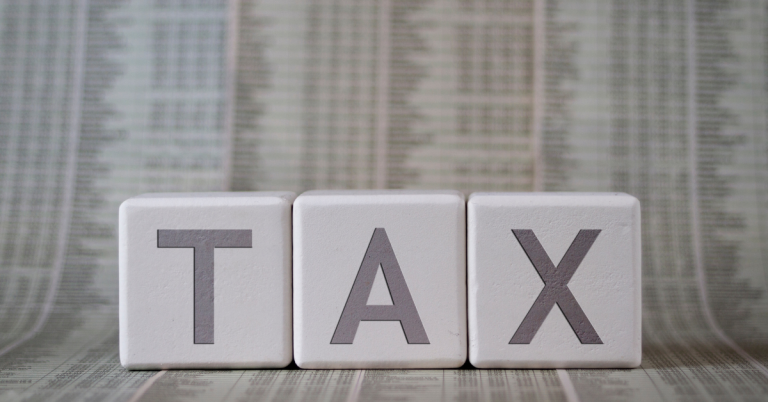A Comprehensive Guide to Creating a Business Strategy & Why Do I Need Business Plan
A business plan isn’t just about writing down everything that you know. It’s about thinking through what you’re trying to achieve, and why it will work. You might even consider writing a business plan as a way to test out different ideas without investing too much money upfront.
Whether you’re looking to start up a side hustle, launch a full-time business, or raise capital, a well-written business plan will give you the confidence to take action. Here are some tips to make sure yours stands out.
1. Be clear about your goals
Your business plan needs to clearly state what you want to achieve. Is it to build a successful online store? To expand into physical retail? Or maybe you want to develop a new product range. Whatever it is, make sure you’ve got a clear idea of where you’re headed.
2. Know your audience
Who’ll read your business plan? Will it be investors, potential partners, or existing clients? If you’re planning to pitch to a specific group, you’ll need to tailor your business plan accordingly. For example, if you’re pitching to investors, you’ll probably want to focus on your vision, mission, and values. But if you’re aiming to sell to current clients, you’ll likely want to talk more about your products and services.
3. Get feedback
What is a Business Plan?

A business plan is a document that describes your idea and how you intend to make money. You might use a business plan to answer questions like “How do I know my business idea will work?”, “Do I have enough capital to start up?”, or “Can I afford to hire employees?”.
Business plans are usually written in three parts. Part one is about describing your product or service. This includes information such as what you’re selling, where you want to sell it, and how much you think it costs to produce. Part two talks about your marketing strategy. For example, you could write down how many people you hope to reach, how often you’ll advertise, and whether you’ll try to promote your business online or offline. And part three covers financial aspects like how much money you expect to spend on advertising and production, how much profit you expect to earn, and how much cash you have saved up.
You don’t need to write a formal business plan to start a business. However, writing a business plan can help you figure out what you need to do to succeed. If you decide later that you don’t want to pursue your original business idea, you can modify your business plan to reflect that change.
What is the Goal of a Business Plan?
A business plan is an essential part of starting up a business. You’re probably already aware that it includes information about your product or service, pricing structure, sales projections, marketing strategies, and much more. But did you know that there are different types of business plans? And how do you decide which one is best for your situation? Let’s take a look at some of the most common types of business plans and learn why each one works well for certain situations.
The four essential components of a business strategy for you
Business plans aren’t just for entrepreneurs anymore. In fact, they’re often used as a tool to secure investment capital. But what makes a good business plan? And how do you know it’ll work? Here are some tips on writing a great one.
1. Write it for yourself, not someone else.
You want to make sure your business plan is written for you, not someone else. If you’ve got investors asking questions about your plan, you might think you’re doing well. But if they don’t understand what you’re saying, they won’t invest. So take the time to write it out clearly, and use language that’s easy to follow.
2. Know your audience.
Who’s reading your plan? Are they technical people, like venture capitalists? Or are they more interested in finding out whether your idea works? Knowing your audience helps you tailor your plan to suit their needs.
3. Be specific.
Your plan is supposed to tell your story—and that story should include specifics. What does your product look like? How much money do you need? Who are your competitors? Where will you sell your product? These details help investors see where you’re coming from.
4. Make it short and sweet.
A business plan shouldn’t be longer than three pages. Keep it simple and clear. Don’t use jargon or complex terms. Use bullet points to keep it organized and concise.
1. What do you hope to accomplish?
Setting goals is one thing; achieving them is another. If you’re like most people, you probably don’t think about what it takes to reach your goals very often. You might even find yourself wondering why you haven’t achieved anything significant yet. This article will help you understand how to make better use of your time and energy, so that you can start making progress towards your goals sooner rather than later.
2. Define your goals clearly
The first step in setting goals is to define exactly what you want to achieve. There are several ways to go about doing this, depending on where you are in life. For example, if you’re just starting out, you’ll probably want to focus on short-term goals, such as saving money, getting into shape, or learning something new. On the other hand, if you’ve been working hard for some time now, you might want to consider long-term goals, such a buying a house or having children.
2. How will you run your company?
A business plan is essential for every entrepreneur. You need one to make sure you are heading down the right path. But what makes a good business plan? And how do you write it? We’re here to help. Here are our tips for writing a great business plan.
1. Start early. If you start planning too late, you’ll find yourself scrambling to meet a deadline. Instead, think of a business plan like a wedding cake — you want to bake it well ahead of time. So start early.
2. Write it once. This sounds simple enough, but many people try to rework their plans throughout the process. Don’t. Your business plan needs to be solid from the very beginning. Make sure everything flows smoothly from the introduction to the conclusion.
3. Keep it short. Writing a long business plan isn’t necessary; keep yours under 10 pages. Include just enough information to show investors why you’re qualified to take over the industry.
4. Use bullet points. Bullet points are easy to read and digest. They let readers know exactly where you stand on each topic.
5. Add visuals. Visuals are powerful tools for communicating complex ideas. In fact, research suggests that visual learners remember up to 80% more than text-only learners. To add impact, use infographics, charts, graphs, photos, videos, etc.
6. Know your audience. Who will be reading your plan? What questions might they ask? What assumptions might they make? Knowing your audience will help you craft a plan that addresses their concerns and interests.
3. How will you handle your finances?
Forecasting shows whether or not you can meet your financial targets. If you’re struggling to make ends meet, forecasting could save you thousands of dollars over the course of a year.
Cash flow forecasts help you understand exactly where your money goes every month. They allow you to see where there are holes in your budget and figure out ways to plug them. This way, you won’t find yourself short on funds later on.
A cash flow forecast helps you predict future needs. By knowing how much money you need to cover expenses like rent, bills, utilities, etc., you can prepare accordingly. This way, you don’t end up having to scramble around trying to come up with extra cash.
Money management is important for any small business owner. Your customers will always expect something more than what you provide. You should never assume anything when it comes to how much people will pay, how long it will take for them to do so, or even how much they’ll actually pay.
4. How do you intend to expand your company?
Write down what you want to accomplish. This could be anything, such as increasing sales or expanding your client base. Then think about how you’ll get there. What partnerships might help you? How can you expand your market share? Look for opportunities. Once you know what you want to do and where you’re headed, keep an eye out for opportunities along the way.
Frequently Asked Questions
Why should I modify my business strategy if I already have one?
A business plan is a document that outlines what a business wants to achieve over a certain period of time. In fact, it’s one of the most important documents for starting a business. But many people forget about their plans or update them infrequently. This leads to problems such as:
1. You don’t know where you are heading.
2. Your goals aren’t clear.
3. You don’ t feel like you are making progress towards achieving those goals.
4. You lose sight of your original vision.
5. You spend too much money chasing a dream.
6. You end up doing things that don’t make sense.
Why is a Business Plan Important to an Entrepreneur?
Business planning is essential to every entrepreneur because it helps you think about what you want to do, how much money you need to make, where you are going to find that money, and whether your idea makes sense. A well thought out business plan will keep you focused on your goals and keep you from making mistakes along the way.






